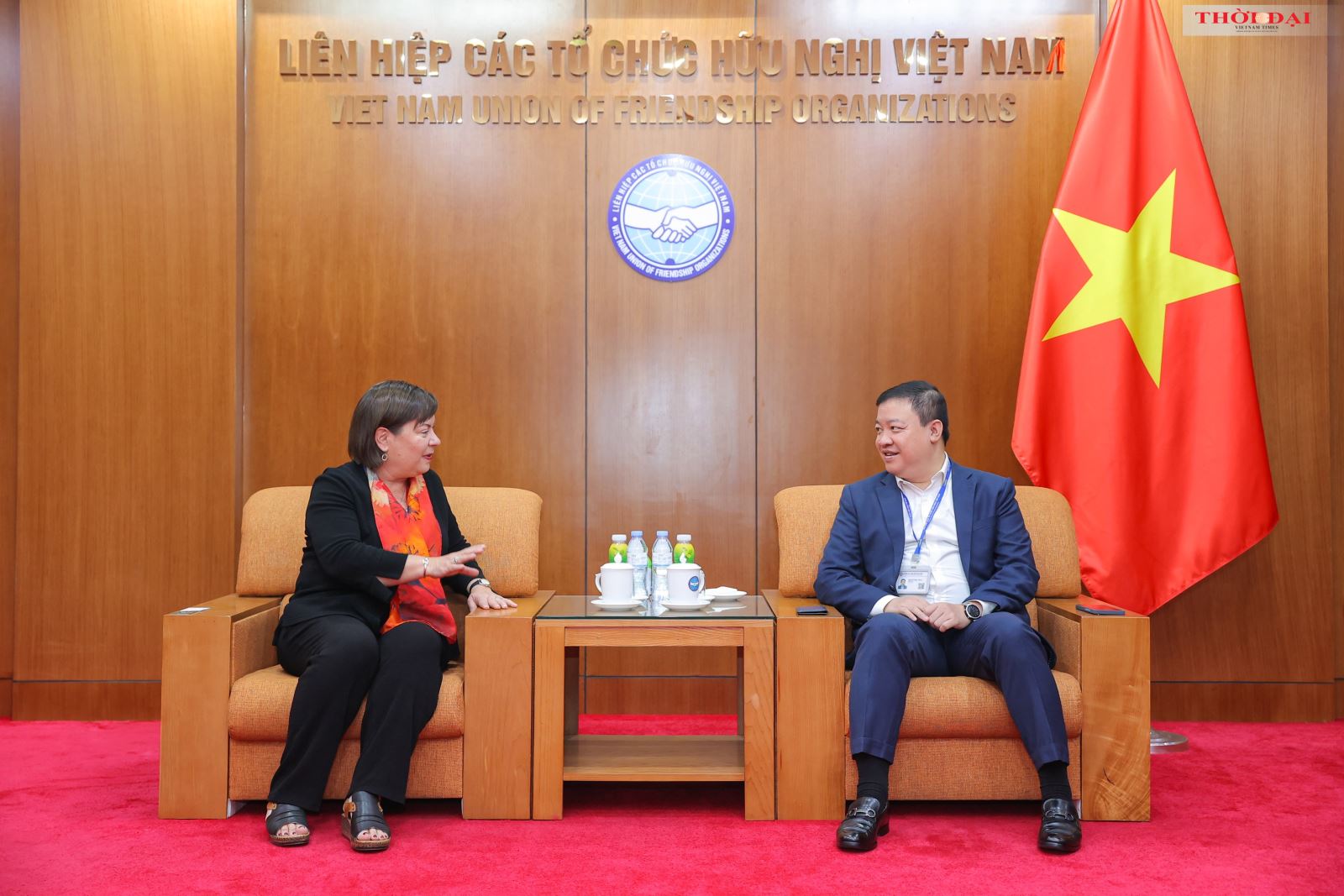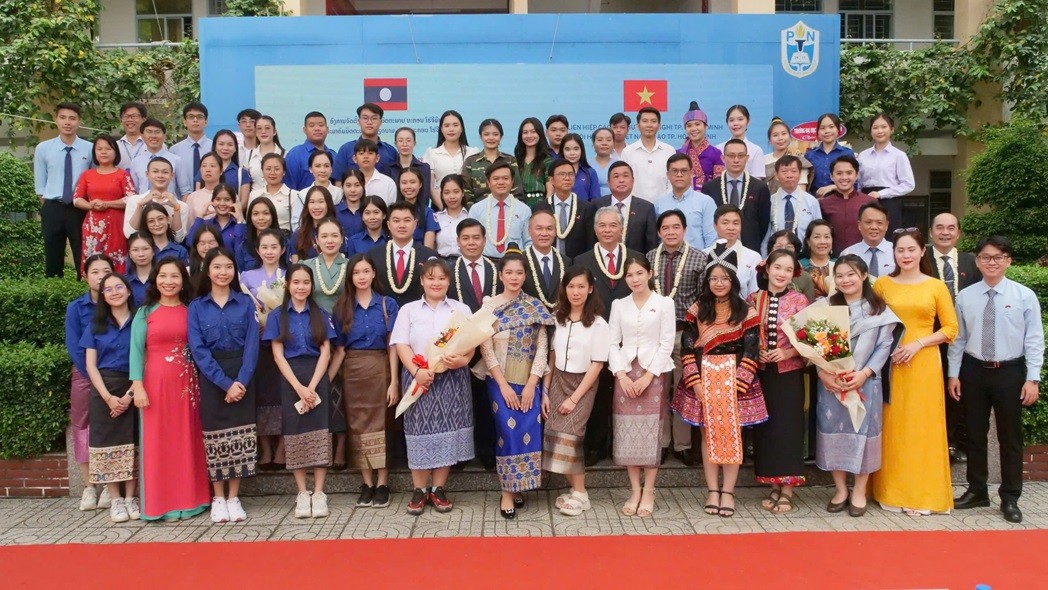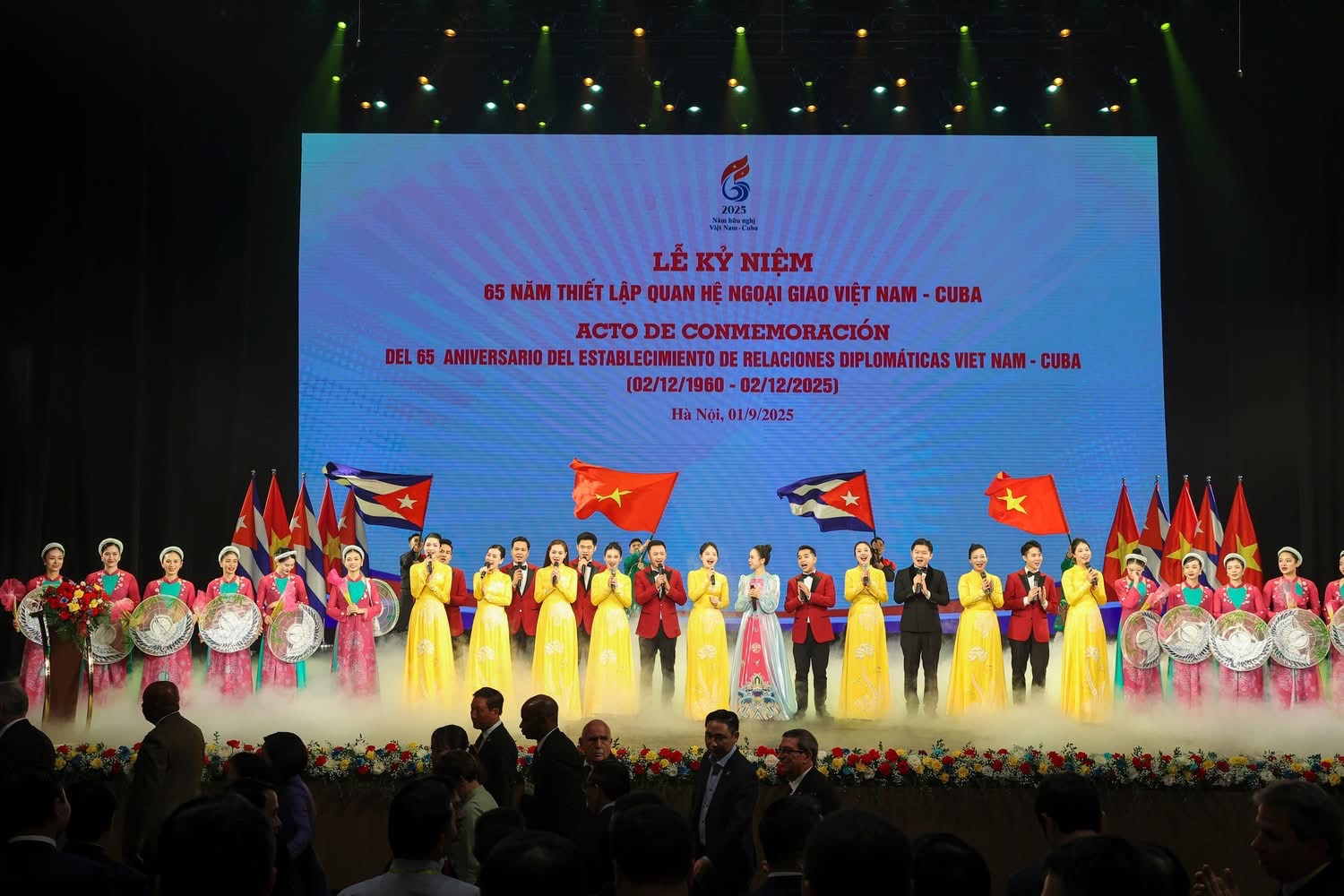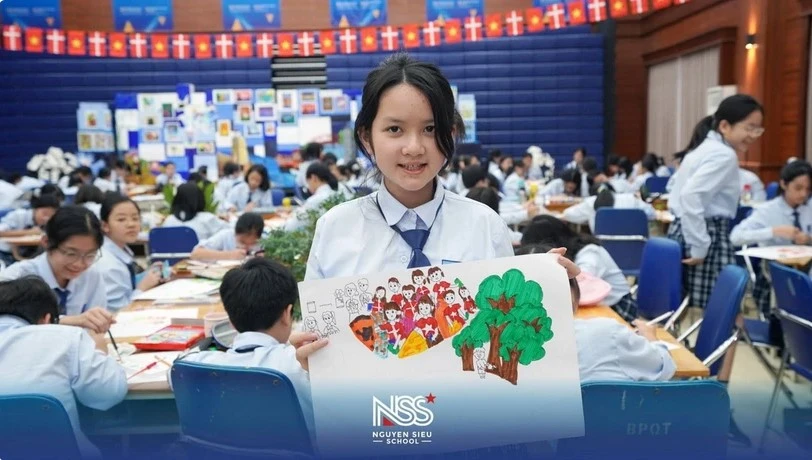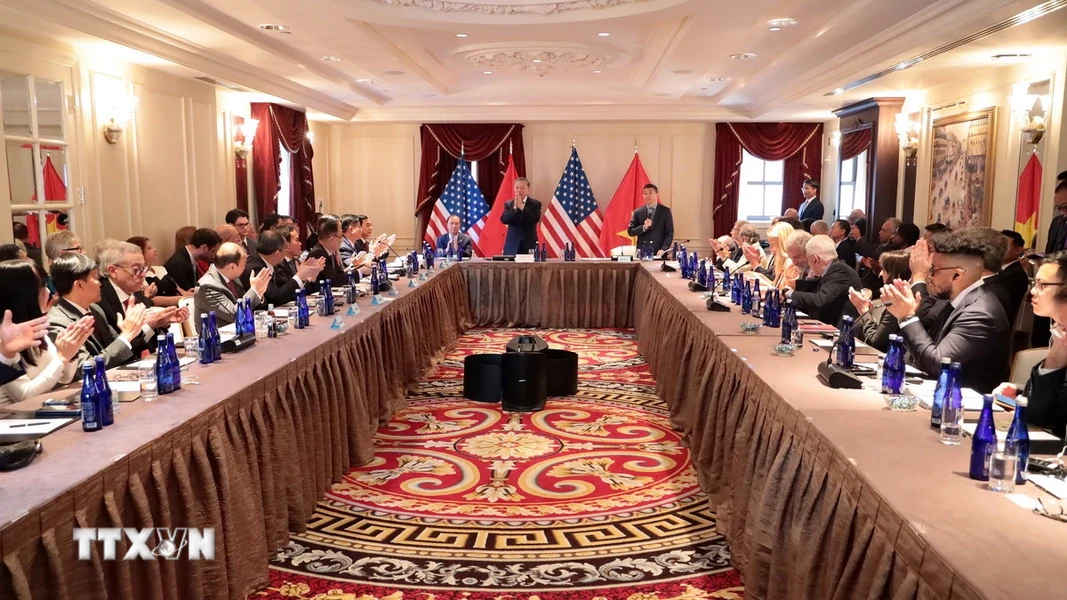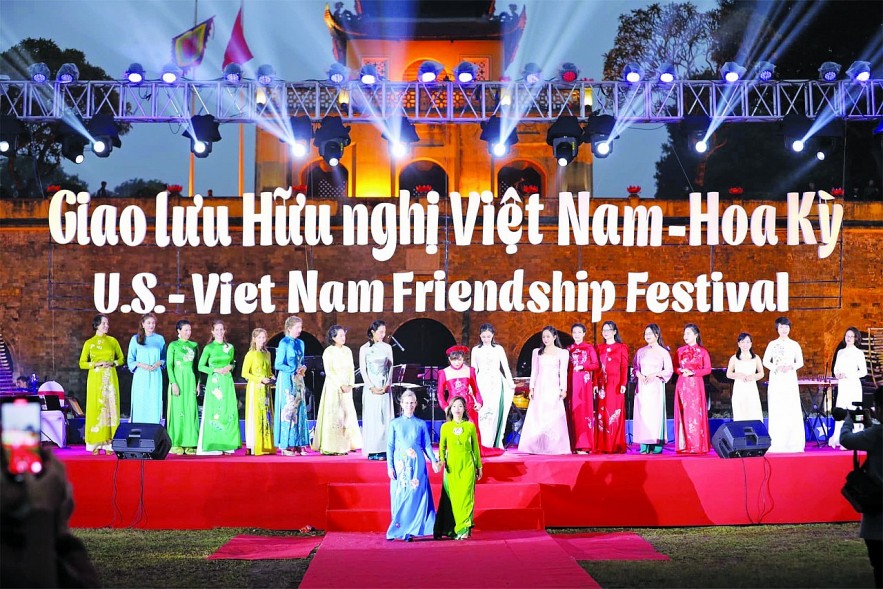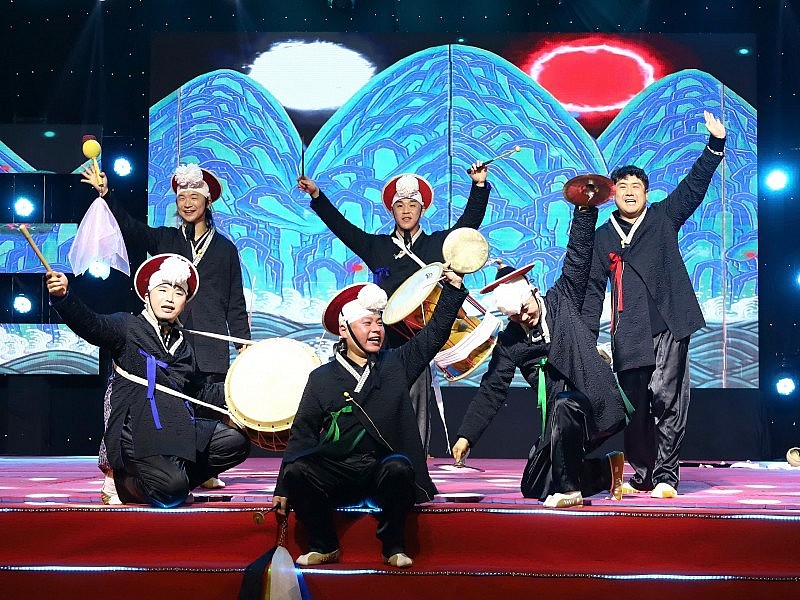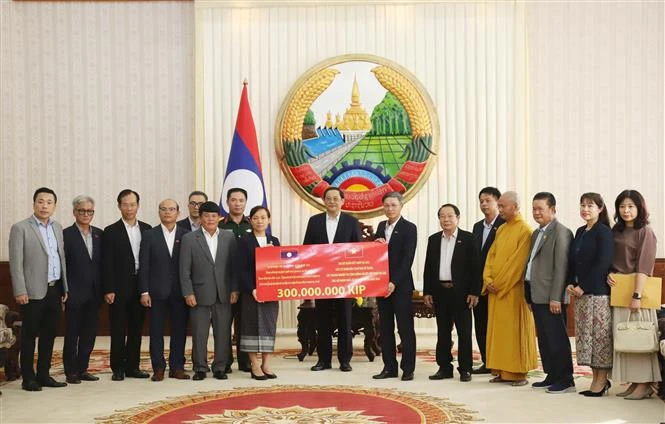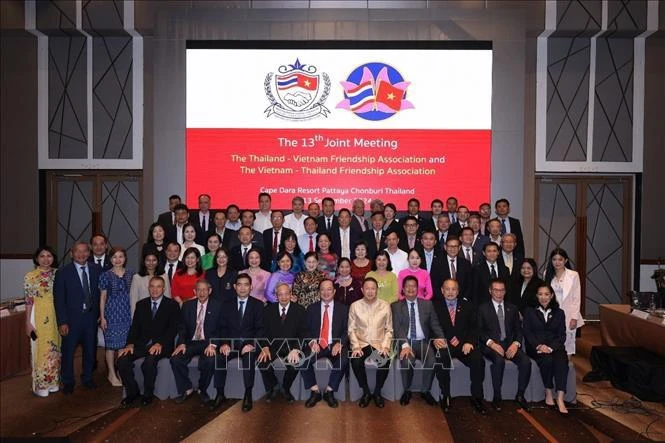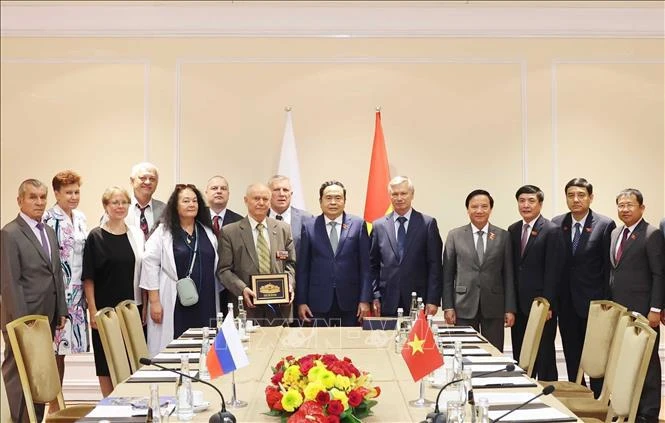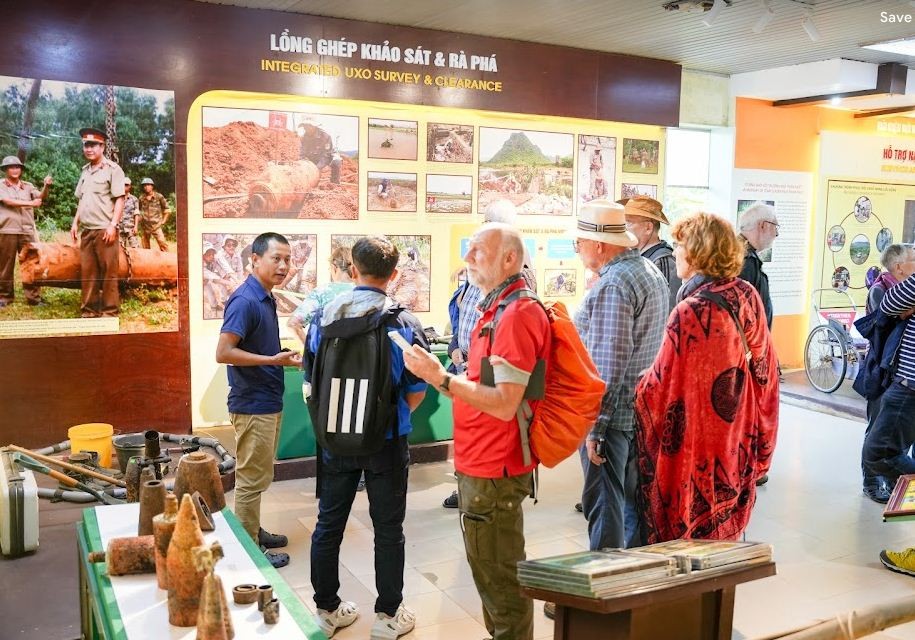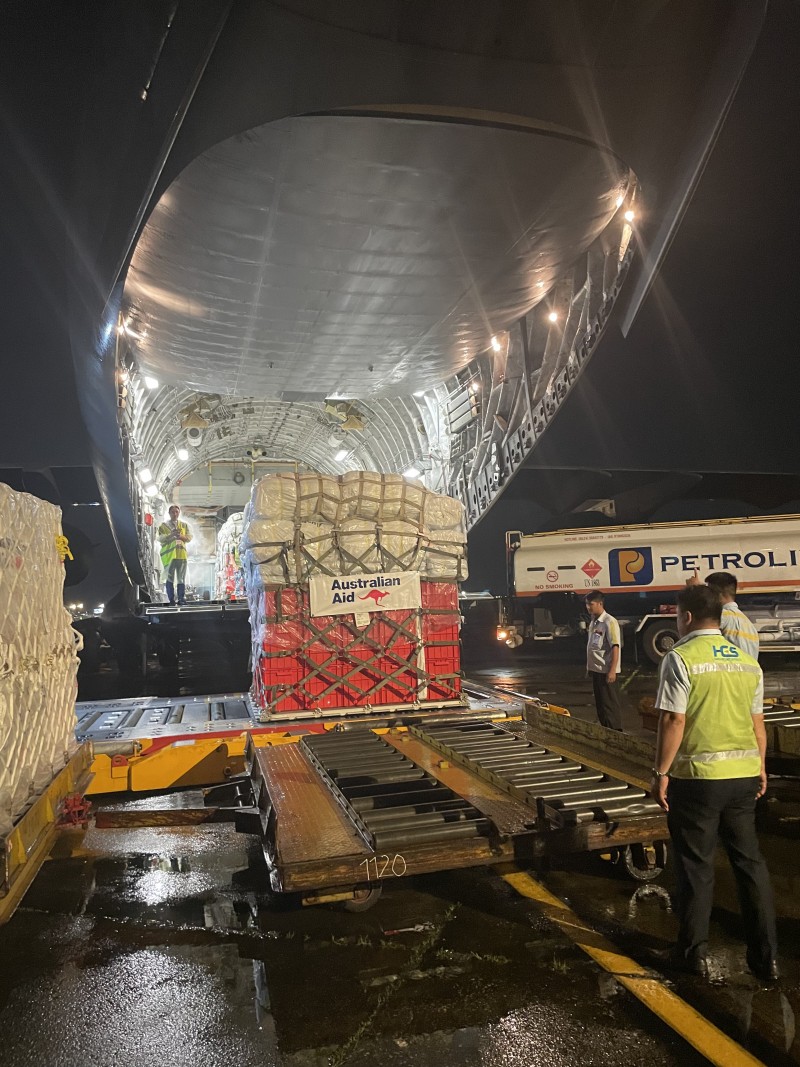
The supplies include a vast array of critical items, including 264 personal hygiene kits, 120 kitchen sets, 264 home repair kits, 600 blankets, 600 sleeping mats, 522 canvas covers and 360 mosquito nets.
* United States announces $1 million for for immediate relief efforts following typhoon Yagi.
The U.S. Mission to Vietnam, through the U.S. Agency for International Development (USAID), is providing $1 million in immediate humanitarian aid to support Vietnam’s efforts to respond to the devastating impacts of Typhoon Yagi. The assistance will be allocated to humanitarian partners to enable the provision of multipurpose cash assistance, shelter, and water, sanitation, and hygiene assistance, as well as non-food items in support of Government of Vietnam-led disaster assistance efforts across Vietnam.
* The New Zealand Government has announced a contribution of NZ$1 million to support Vietnam’s efforts to recover from the devastating effects of Typhoon Yagi. The aid will be channeled through New Zealand’s disaster response partners and UN agencies in Vietnam, focusing on emergency response and livelihood recovery.
* On September 12, the embassies of Japan and the Republic of Korea (RoK) said that the governments of the two countries have decided to provide emergency aid of goods and equipment to Vietnam to help northern localities deal with the typhoon aftermath.
The Japanese government has decided to deliver emergency aid through the Japan International Cooperation Agency (JICA), including water filtration equipment and multipurpose plastic sheets, to address the damage caused by the storm in Vietnam.
Earlier, Japanese Prime Minister Kishida Fumio extended condolences to Prime Minister Pham Minh Chinh over the impact of typhoon Yagi in Vietnam. In the message, Prime Minister Kishida expressed his deep sympathies to the families affected by the storm and emphasised that the Japanese government stands side by side with Vietnam and is ready to support the country in overcoming difficulties, fixing the disaster aftermath, and restoring normal living conditions as soon as possible.
At the same time, the RoK Government has decided to provide humanitarian aid worth 2 million USD for Vietnam to fix the consequences of the disaster.
* Switzerland sends experts and over $1 million to aid Vietnam's typhoon relief efforts: The Swiss Agency for Development and Cooperation (SDC) has dispatched a team of six experts from the Swiss Humanitarian Aid Unit to Việt Nam and earmark 1 million CHF (about US$1.1 million) to support people affected by Typhoon Yagi in this Southeast Asian country.
The team, comprising specialists in water and sanitation, emergency shelter, and disaster risk reduction, will assist the Vietnamese authorities in assessing needs and formulating short- and medium-term responses, SDC said in a press release on September 12.
The SDC is also arranging to send relief supplies, including 300 family tents and two water distribution systems capable of serving 10,000 people. In the immediate term, the SDC is liaising with the Association of Southeast Asian Nations (ASEAN) to deliver essential goods financed by Switzerland to the affected areas.
* Under Operation Sadbhav (Goodwill), the Government of India airlifted emergency relief supplies to Vietnam on 15 September to support affected communities in several northern provinces of Vietnam following Cyclone Yagi.
A 35-tonne consignment of humanitarian aid items from India was airlifted to Hanoi on the night of 15 September 2024 by an Indian chartered aircraft. The relief supplies included essential items such as water purifiers, blankets, mosquito nets, kitchenware, water tanks, buckets with taps, and solar lamps based on the needs of the affected communities and recommendations from the authorities. The consignment was worth US$1 million.
* UNICEF Vietnam has urgently transported 80 water purification tablets for the Centre of Disease Control in Thai Nguyen province and 4,000 litres of water to the Lao Cai provincial Hospital to ensure the supply of drinking water for 800 people as part of efforts to help communities affected by typhoon Yagi overcome disaster consequences.
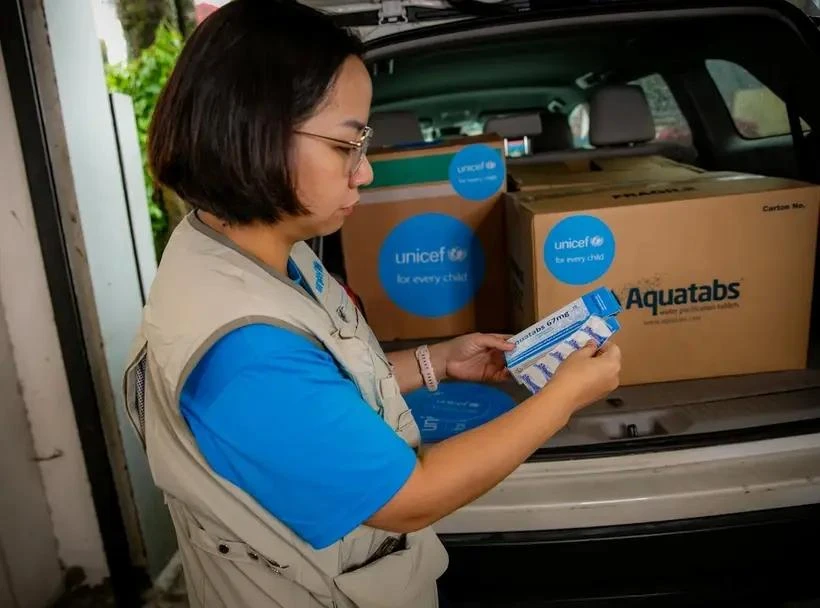
UNICEF Vietnam has urgently transported 80,000 water purification tablets for the Centre of Disease Control in Thai Nguyen province and 4,000 litres of water to the Lao Cai provincial Hospital (Source: UNICEF)
In the coming days, UNICEF will provide water purification tablets, water tanks, ceramic filters, hand sanitisers and soap to households, schools and healthcare facilities in Yen Bai and Lao Cai provinces.
It is committed to urgently providing sustained support to the Government of Vietnam to ensure children and families have access to essential services, said Silvia Danailov, UNICEF’s Representative in Vietnam.
“We have already started to deliver life-saving support and are mobilising resources to address the massive needs. Too many children have had their access to essential services like clean water, sanitation, healthcare and education cut off and swift action to restore these lifelines is urgently needed. The devastation caused by the typhoon is a tragic reminder of the disproportionate impact extreme weather events, intensified by climate change, have on children,” she said.
Nearly 19 million people, including 5.5 million children, live in the hardest-hit cities and provinces of Lao Cai, Tuyen Quang, Cao Bang, Yen Bai, Quang Ninh, Hai Phong, Hanoi, Thai Binh, Hai Duong, Hoa Binh, Thai Nguyen and Phu Tho.
Typhoon Yagi ravaged 26 northern localities, leaving 324 people dead and missing, including 24 children. It has damaged an estimated 141,469 homes, 550 health facilities and 805 schools, while around 400,000 homes lack access to safe water.
Approximately 2 million children have been left without access to education, psychosocial support and school feeding programmes.
National authorities have issued a warning for continued heavy rain, with flash floods and landslides still devastating villages and communities in the northern provinces of the country which are home to a large number of vulnerable communities, including ethnic minorities.
In response to the Government's strong and commendable efforts to address the disaster's impact, UNICEF is focusing on several key interventions, including water, sanitation supplies and safe storage solutions to households, health facilities and schools.
The organisation is also delivering emergency medical supplies such as vaccines, malnutrition treatments, nutrition supplements and hygiene kits to health centres in the most affected areas.
To support the reopening of schools, it is offering temporary learning spaces and educational materials for children affected by the trauma of the disaster. Additionally, emergency kits containing essential items, including educational tools and support materials, are being distributed to children and families.
UNICEF is also providing humanitarian cash assistance to the most vulnerable households, particularly those with children and pregnant women.
They say they are currently mobilising resources to ensure emergency aid is urgently provided. An initial 11 million USD is urgently required to be able to deliver on its mandate to assist the most vulnerable children.
Source: VNA

